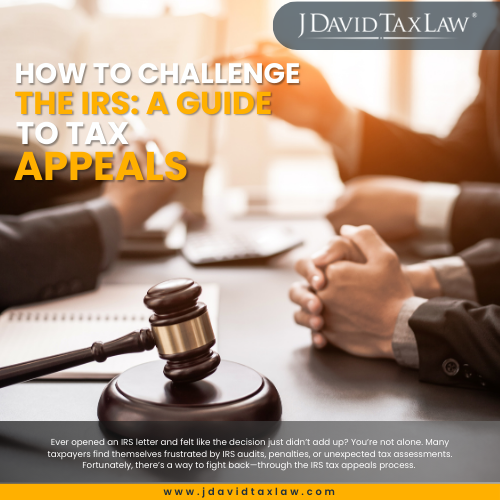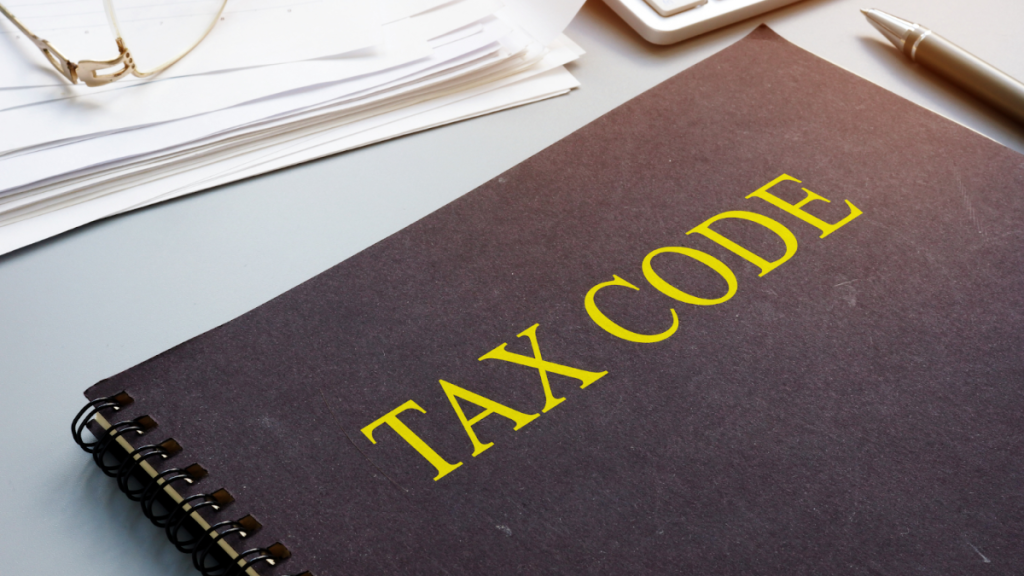Ever opened an IRS letter and felt like the decision just didn’t add up? You’re not alone. Many taxpayers find themselves frustrated by IRS audits, penalties, or unexpected tax assessments. Fortunately, there’s a way to fight back—through the IRS tax appeals process.
This guide will break down how to challenge the IRS using tax appeals, so you can turn that frustration into action and work towards a fair resolution.
Understanding the IRS Appeals Process
The IRS appeals process is an independent review of decisions made by the IRS. It is designed to resolve tax disputes without going to court. To maintain its impartiality, the Appeals Office of the IRS strictly enforces a policy that prevents certain direct communications, known as ex parte communications, with the IRS Collection office or other IRS branches. This policy is important as it restricts discussions that might influence the outcome of a case, particularly those that involve the strengths or weaknesses of the taxpayer’s position. So if you disagree with an IRS audit result, penalty, or tax assessment, you have the right to appeal the decision.
The internal revenue service appeals office ensures that tax disputes are handled impartially and fairly; thus, giving taxpayers a chance to present their case. Once you receive a notice from the IRS, you typically have 30 days to file a formal protest or request for an appeal. Missing this window can limit your options, so it’s important to act quickly when considering an appeal.
Here are some of the IRS decisions that you can file for appeal:
Audit adjustments
Collection actions such as tax liens and tax levies
Rejected Offer in Compromise
It’s important to know that the appeals process is not about reopening your case entirely but rather about reviewing the IRS’s decision to ensure that all tax laws were applied correctly. The process gives you the opportunity to negotiate and settle disputes in a more favorable manner.
Did you know our client was facing a massive $917,667 tax liability from New York State for assessments covering 2015-2017? Our skilled tax appeal attorneys successfully appealed and eliminated the entire liability. Call us at (888) 342-9436 to find out how.
When to Consider a Tax Appeal
Not every IRS notice requires an appeal. However, there are certain situations when challenging their decision can save you from unnecessary penalties or financial loss.
If you believe the IRS has made an error, it may be time to consider filing an appeal. Common triggers for a tax appeal include:
Disputed Audit Results
If the IRS adjusts your tax return after a tax audit and you believe the changes are incorrect, appealing can help set the record straight. Whether it’s about deductions, income discrepancies, or the interpretation of tax law, you have the right to challenge the IRS’s findings.
Penalties You Don’t Owe
Each year, millions of taxpayers are hit with penalties, but not all are justified. You may find yourself penalized for late filing, underpayment, or even a clerical error on your return. If you can demonstrate reasonable cause or IRS error, appealing can lead to a reduction or elimination of these penalties.
Unexpected Tax Assessments
If the IRS claims you owe more taxes than you expected, either due to income discrepancies or overlooked deductions, you can appeal to resolve the issue. In some cases, incorrect assessments may arise from misinterpretations or errors during processing.
Before jumping into an appeal, consider alternatives such as an Offer in Compromise or entering into a payment agreement. This could resolve the situation faster without the need for a formal appeal. But if you’re confident that the IRS has made a mistake or that their decision isn’t fair, filing an appeal may be your best option.
Eligibility Requirements To File an Appeal
Before you can file a tax appeal, it’s important to understand the eligibility requirements. Generally, taxpayers who disagree with an IRS decision—whether it’s regarding an audit, penalties, or tax assessments—can use the tax appeals process to challenge the ruling. However, not all issues qualify for an appeal.
Eligible Requests for Tax Appeals:
You must have received an IRS letter (e.g., Notice of Deficiency or Notice of Proposed Adjustment) that outlines the IRS’s decision.
You must file your appeal within the time frame specified in your IRS letter, typically within 30 days.
Your appeal must involve a legitimate dispute regarding the IRS’s interpretation of tax laws, including disagreements on:
The amount of tax owed.
Penalties assessed.
Accuracy of adjustments made to your tax return.
Requests Not Eligible for Tax Appeals: While many disputes are eligible for appeal, certain issues are not. According to the IRS guidelines:
Collection Appeals Program (CAP) issues: Appeals involving the collection of taxes rather than the amount of tax owed are handled separately.
Frivolous tax claims: If your dispute involves a claim the IRS has deemed frivolous (i.e., lacking a valid legal basis), it is not eligible for the appeals process.
Tax cases that have been settled by the courts: If a court has already made a decision on your tax dispute, you cannot appeal the outcome through the IRS tax appeals process.
Issues not raised during the audit: New issues that were not previously discussed during the IRS examination or audit are ineligible for appeal.
Steps to File a Notice of Appeal
1) Review the IRS Notice
The first step is to carefully read the IRS notice you received. This notice will explain the IRS’s decision including the:
reasons behind any tax assessment,
audit adjustment, or
penalty.
Pay close attention to the deadlines. Make sure to understand the specific issue the IRS is raising and why you believe their decision is wrong.
2) Prepare Your Case
Building a strong appeal starts with gathering all the relevant documents and evidence that support your claim. This might include:
Copies of tax returns
Receipts and records for deductions or income discrepancies
Documentation of penalties you’ve already paid
Any correspondence you’ve had with the IRS regarding the issue
It’s important to present a clear, organized case that shows why you disagree with the IRS’s findings.
3)Submit a Written Protest for Tax appeal
For cases involving larger tax amounts or more serious disputes, you’ll need to submit a formal written protest.
In this protest letter, include these three key pieces of information or details:
Clearly outline the facts of your case
Explain why you disagree with the IRS decision
Include any legal or tax code references that support your position.
For disputes under $25,000, taxpayers can file a small case request using IRS Form 12203, which requires a brief explanation of the disagreement. This simpler process applies if the total tax and penalties for each tax period do not exceed $25,000.
For disputes over $25,000, a formal written protest is required, involving a more detailed explanation, supporting documentation, and legal justification. The formal protest ensures that larger disputes are thoroughly reviewed by the IRS.
4) Follow Up with the IRS Office of Appeals
Once your appeal is submitted, the IRS Office of Appeals will review your case. They may contact you for additional documentation or clarification. Appeals can be conducted through mail, over the phone, or in person. During this stage, you may negotiate with the IRS to resolve the issue without going to court. Be patient—this process can take several months.
Challenge your IRS decision confidently! Secure your financial future with our A+ rated tax law firm, backed by 40 years of collective experience. Book free consultation to start your appeal process today!
Appealing a Collection Decision
If you disagree with an IRS collection action, such as a levy, lien, or seizure, you have the right to appeal through the Collection Appeals Program (CAP) or the Collection Due Process (CDP). CAP appeals can be filed at any stage of the collection process but do not offer judicial review, while CDP appeals are more formal and allow for court review if the appeal is denied.
To request an appeal, you’ll need to file IRS Form 9423 (Collection Appeal Request) or follow the CDP process using IRS Form 12153. Both methods give taxpayers a chance to resolve disputes before the IRS enforces collection actions.
What Happens During the IRS Appeals Process?
Once you’ve submitted your appeal, the process shifts to the IRS Office of Appeals, an independent division that reviews disputes impartially. Here’s what to expect during this phase:
Initial Review and Response
After receiving your appeal, the IRS will assign an IRS appeals officer to your case. This officer’s job is to review the information you’ve provided, along with the original IRS decision. If necessary, they will request additional documentation or clarification. Be sure to respond promptly to any IRS inquiries during this stage to keep the process moving smoothly.
Informal Communication and Negotiation
The IRS appeals process is known for its informal approach, which typically does not require court appearances. Most appeals are managed through written correspondence, phone calls, or face-to-face meetings. This flexibility helps streamline the process and makes it more accessible for taxpayers.
During the negotiation phase, an IRS appeals officer will collaborate with you or your designated representative to find a resolution. This is often facilitated through an appeals conference, which may be conducted via phone, in-person, or through written communication. The conference provides you with an opportunity to present your case directly to the appeals officer and engage in negotiations.
Potential Outcomes of the IRS Appeal
It is common for the IRS to offer a settlement or make adjustments to their initial decision during these conferences. Many disputes are effectively resolved at this stage, thereby eliminating the need for further litigation.
There are several potential outcomes from an IRS appeal:
Agreement: If the IRS agrees with your appeal, they may reverse or adjust their original decision, reducing your tax liability, penalties, or both.
Rejection: The IRS may stand by their original decision if they believe your appeal lacks merit. In this case, you may need to consider other options, like taking the case to Tax Court.
Compromise: Often, both parties will reach a compromise, where the IRS reduces part of the disputed amount while you agree to pay the rest.
Timeline and Patience
The appeals process can take time, often stretching out for several months depending on the complexity of the case and the backlog of appeals. While it may feel like a lengthy process, patience is key. Regularly following up and staying organized can ensure that your case is processed efficiently.
Unsure what will happen during your appeal process? Contact us today and let’s fight for the best possible outcome for your tax issues.
4 Common Mistakes to Avoid in Tax Appeals
While the IRS appeals process gives you a chance to rectify a disputed decision, it’s important to approach it carefully. Mistakes during the appeals process can lead to delays, rejections, or unfavorable outcomes.
Here are some common pitfalls to watch out for:
Incomplete Documentation: Failing to provide accurate, organized records can weaken your appeal.
Missing Deadlines: Missing the 30-day window to file can result in losing your right to appeal.
Misunderstanding the Process: Not following IRS instructions or using the wrong forms can lead to delays or rejection.
Overlooking Professional Help: A J. David Tax Law tax appeal attorney can strengthen your appeal, especially for complex cases.
Know Your Rights and Take Action
Challenging the IRS may seem overwhelming, but the appeals process is there to ensure you have a fair chance to dispute decisions that impact your financial well-being. Whether you’re facing an audit, penalty, or unexpected tax assessment, understanding how to file an appeal is the first step toward resolving the issue.
Time is of the essence when it comes to IRS appeals. Missing deadlines can severely limit your options, so it’s important to act fast.
At J. David Tax Law, our experienced tax appeal lawyers have successfully represented thousands of clients in IRS appeals, helping them achieve fair resolutions. Call us at (888) 342-9436 to get started.
Your Tax Relief Questions, Answered















